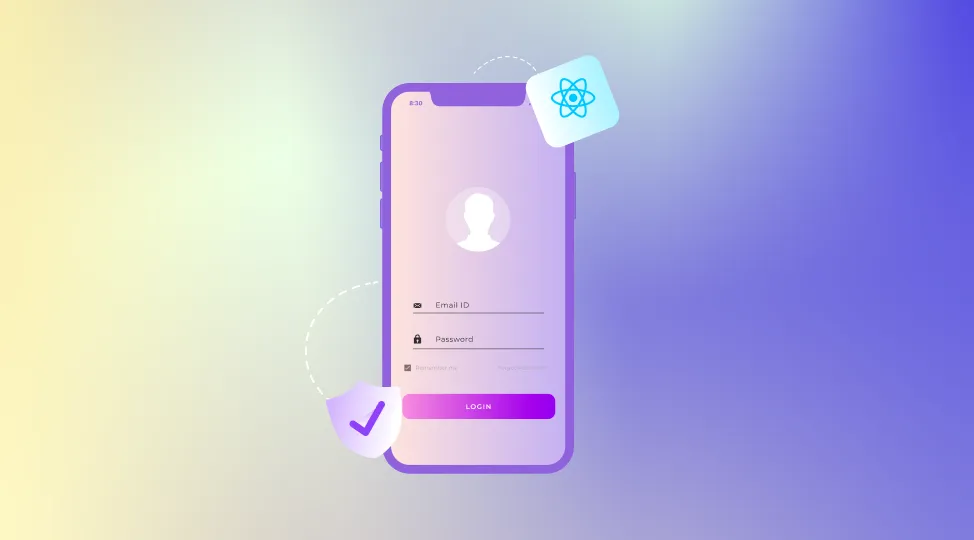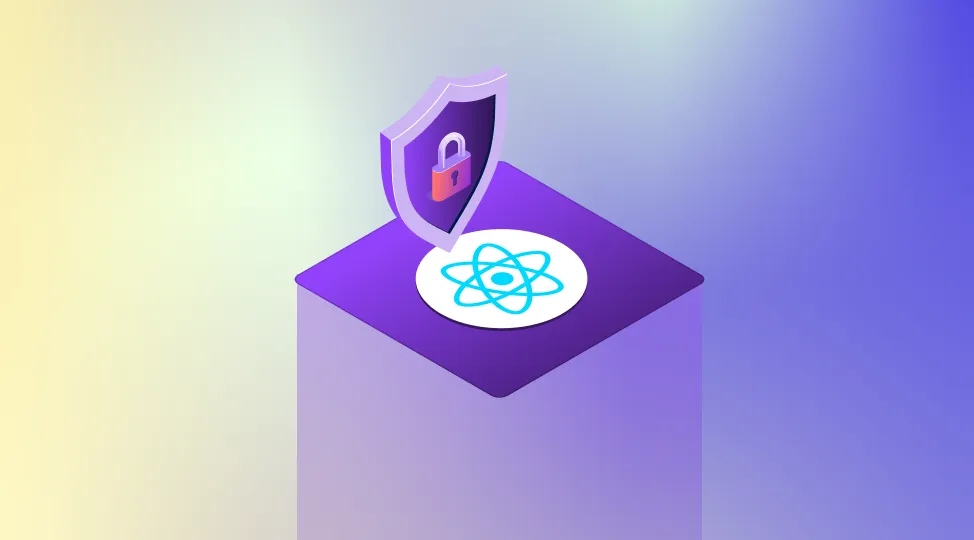Imagine a developer's toolkit as a high-performance vehicle, each tool a finely tuned component driving the innovation journey. As we race into 2025, iOS app development is no longer a simple ride but an exhilarating expedition fueled with groundbreaking tools.
These iOS app development tools are not just enhancements but game-changers, each engineered to tackle modern app creation's unique challenges.
This year, we’re spotlighting the 17 most essential iOS/iPhone app development software, reshaping our approach to app creation. These tools are crafted to meet the demands of today’s development challenges and tomorrow’s opportunities.
Why iOS App Development Tools Matter in 2025?
The right tools can significantly impact the efficiency and quality of your iOS app development projects. As iOS apps become more advanced, having access to cutting-edge tools can make the difference between a successful launch and a missed opportunity. This guide explores the 17 best iOS app development software that set new standards and deliver exceptional applications.
17 Best iOS App Development Tools
The tools listed in this guide were selected based on our expert iOS developer's comprehensive analysis. We considered their performance in real-world scenarios, user feedback, and impact on the mobile app development process. Each tool was assessed for its innovation, functionality, and ability to meet the evolving needs of iOS developers.
Design and Prototyping Tools

1. Figma
Figma is a powerful, web-based design tool widely used in app development for UI/UX design. It enables real-time collaboration, allowing teams to work seamlessly from different locations. With its intuitive interface, Figma makes it easy to create wireframes, prototypes, and high-fidelity designs essential to the iOS app development process.
- Real-Time Collaboration: Allows multiple team members to work on a design simultaneously, ensuring quick feedback and efficient workflows.
- Cloud-Based Storage: All designs are stored in the cloud, which allows developers to access them from any device. This ensures easy sharing and version control.
- Component-Based Design: Reusable components and styles streamline the design process, ensuring consistency across the app's UI.
- Cross-Platform Compatibility: Works on any operating system (Windows, macOS, etc.), eliminating the need for specific hardware or software.
- Interactive Prototypes: This feature enables the creation of interactive, clickable prototypes that can be tested directly on iOS devices, providing a clear vision of the app's functionality.
2. Adobe XD
Adobe XD is a vector-based design tool for web and mobile apps. It offers a comprehensive solution for UI/UX design, wireframing, and prototyping. As a preferred iOS app development tool, it’s part of Adobe's Creative Cloud suite. It integrates smoothly with other Adobe products, making it a favorite among designers familiar with the ecosystem.
- Seamless Integration with Adobe Ecosystem: It easily integrates with other Adobe tools like Photoshop and Illustrator, helping to create a smooth workflow if you're already using Adobe products.
- Auto-Animate Feature: This feature enables the creation of advanced animations and transitions between screens, which enhances the user experience of iOS apps.
Responsive Resize: Automatically adjusts designs to different screen sizes, ensuring your app looks great on various iOS devices.
- Plugins and Extensions: A wide range of plugins extends Adobe XD’s functionality, including tools for asset management, user testing, and design automation.
- Design and Prototyping in One Tool: This tool combines design and prototyping in one platform, reducing the need to switch between different tools and speeding up the development process.
Integrated Development Environments (IDEs)
3. Xcode
Xcode is Apple's official integrated development environment (IDE) tailored for building applications across iOS, macOS, watchOS, and tvOS. It offers a comprehensive toolkit for coding, testing, debugging, and deploying apps. Supporting languages like Swift and Objective-C, Xcode is essential for iOS app development.
- Native Development Environment: Xcode is explicitly designed for Apple platforms, ensuring your apps are fully optimized and compatible with the latest features and APIs.
- Interface Builder: This tool lets you design user interfaces visually through a drag-and-drop interface, simplifying the creation and arrangement of your app's UI elements.
- Swift and Objective-C Support: Whether you prefer Swift’s modern syntax or need to work with legacy Objective-C code, Xcode fully supports both languages.
- Integrated Testing Tools: Xcode comes with built-in testing frameworks, making it easier to ensure your app runs smoothly and is free of bugs before release.
- App Simulator: The built-in simulator allows you to test your app on different iOS devices and versions, even if you don’t have the physical hardware.
- Source Control Integration: With Git integration, you can manage your code versions and collaborate with others directly within Xcode.
- In-depth Debugging Tools: Xcode provides tools that help you track down and resolve code, memory, or performance issues.
Version Control Tools

4. GitHub
GitHub is a widely used platform for hosting and collaborating on code projects, making it an essential mobile app development tools. It provides a web-based interface for version control using Git, allowing developers to track changes, collaborate with others, and manage software projects. GitHub is known for its robust community and integration with various development tools.
- Collaborative Development: GitHub makes it simple for teams to collaborate on the same project with features like pull requests and code reviews.
- Version Control: This helps you keep track of every change in your codebase, allowing you to revert to previous versions if needed.
- Integration with CI/CD Tools: GitHub integrates well with continuous integration and continuous deployment (CI/CD) tools, automating the testing and deployment of your iOS apps.
- Extensive Community Support: With a vast user base, GitHub offers resources, libraries, and open-source projects to accelerate your development process.
- Project Management: Built-in tools like Issues, Projects, and Wikis help you efficiently manage your app development process.
5. Bitbucket
Bitbucket is a reliable iOS app development platform that uses Git-based source code management and collaborative development. It’s particularly well-integrated with Atlassian’s suite of tools, like Jira and Trello, making it a great choice for teams already using these products. Bitbucket supports both Git and Mercurial repositories.
- Seamless Integration with Atlassian Tools: If your team uses Jira or Trello, Bitbucket integrates smoothly, streamlining your development and project management processes.
- Private Repositories: Bitbucket offers unlimited private repositories for small teams, which is beneficial for keeping your iOS projects secure and private.
- Built-in CI/CD Pipelines: Bitbucket provides integrated pipelines for continuous integration and deployment, helping automate your build, test, and release process.
- Branch Permissions: You can control who can change specific branches in your repository, adding an extra layer of security to your codebase.
- Scalability: Bitbucket scales well from small projects to enterprise-level deployments, making it versatile for various project sizes.
6. GitLab
GitLab is an all-in-one DevOps platform that combines Git repository management, CI/CD, and project management tools, making it a comprehensive iPhone app development software solution.
It’s designed to cover every stage of the software development lifecycle, from planning and development to testing and deployment. GitLab can be hosted on your servers or used as a cloud service.
- Complete DevOps Platform: GitLab offers a comprehensive suite of tools for everything from code management to deployment, reducing the need for multiple platforms.
- Built-in CI/CD: GitLab has built-in solid CI/CD capabilities, allowing you to automate testing and deployment processes directly from your repositories.
- Self-Hosting Options: For teams with specific security or compliance needs, GitLab offers a self-hosting option, giving you complete control over your environment.
- Merge Request Reviews: GitLab’s merge requests facilitate thorough code reviews and discussions before any changes are merged into the main branch.
- Issue Tracking and Project Management: GitLab’s integrated issue tracking and project management tools help you stay organized and on top of your development tasks.
Testing and Debugging Tools

7. XCTest
XCTest is Apple’s official testing framework, integrated directly into Xcode. It is one of the essential iOS app development tools. XCTest allows developers to write and run unit, UI, and performance tests to ensure their iOS apps function correctly. It is crucial for maintaining the quality and reliability of apps throughout the development process.
- Seamless Integration with Xcode: Since XCTest is built into Xcode, it provides a smooth testing experience without switching between different iOS app development software.
- Comprehensive Test Coverage: XCTest supports various tests, including unit, UI, and performance tests, enabling thorough validation of your app’s features.
- Automated Testing: By automating your tests, XCTest helps catch bugs early in the development process, reducing the risk of issues in production.
- Test-Driven Development (TDD) Support: XCTest is ideal for teams practicing TDD. It allows you to write tests before code, ensuring your app meets the required specifications.
- Continuous Integration Compatibility: XCTest works well with CI tools like Jenkins and GitLab CI, allowing you to run tests automatically whenever code is pushed to your repository.
8. TestFlight
TestFlight is an Apple-owned beta testing service integrated with App Store Connect and widely regarded as one of the essential iOS app development tools. It allows developers to distribute beta versions of their iOS apps to testers before the official release, simplifying gathering feedback and identifying bugs in real-world usage.
- Easy Beta Distribution: TestFlight makes distributing your app to beta testers simple, streamlining the process of getting real-world feedback before the official launch.
- Feedback Collection: Testers can quickly provide feedback through TestFlight, helping you identify issues and improve your app based on real user experiences.
- Over-the-Air Installation: TestFlight allows testers to install your app directly on their devices over the air without the need for complicated installation processes.
- Support for Multiple Builds: You can distribute different app versions simultaneously, which helps test various features or configurations.
- Integration with App Store Connect: Since TestFlight is part of Apple’s ecosystem, it integrates seamlessly with App Store Connect, making it easier to manage your app’s development lifecycle within a single iOS/iPhone app development software environment.
Continuous Integration and Deployment (CI/CD) Tools

9. Jenkins
Jenkins is an open-source automation server widely used in continuous integration and continuous deployment (CI/CD) pipelines, making it an essential iOS mobile app development tools. It automates various stages of the development process, from building and testing to deploying iOS apps, helping teams deliver high-quality software faster.
- Automated CI/CD Pipelines: Jenkins automates the entire build, test, and deployment process, reducing manual effort and minimizing errors in your iOS app development software workflow.
- Extensive Plugin Ecosystem: With a vast array of plugins available, Jenkins can be customized to fit the specific needs of your iOS development environment.
- Scalability: Jenkins can scale from small projects to enterprise-level applications, making it suitable for teams of all sizes.
- Integration with Other Tools: Jenkins seamlessly integrates with various tools, such as GitHub, Bitbucket, and Fastlane, ensuring a smooth workflow across different stages of development.
- Continuous Feedback: Jenkins provides immediate feedback on the state of your app after each commit, allowing developers to address issues quickly.
10. Fastlane
Fastlane is an open-source platform designed to automate the tedious tasks of iOS app development, such as building, testing, and releasing apps. It's one of the most efficient iOS app development tools for managing the entire app deployment process, saving developers time and effort.
- Automated Workflows: Fastlane automates repetitive tasks like code signing, screenshots, and beta distribution, streamlining the use of your iOS app development software.
- Seamless Integration with CI/CD Tools: Fastlane integrates smoothly with tools like Jenkins, CircleCI, and GitLab CI, enhancing your automated workflows.
- Code Signing Management: Fastlane simplifies the complex process of managing certificates and provisioning profiles, reducing potential issues during the app release process.
- Customizable Actions: Fastlane provides a wide range of pre-built actions that can be customized to fit your specific development needs, making it versatile and flexible.
- Time Efficiency: By automating the app deployment pipeline, Fastlane saves significant time, allowing developers to focus more on coding and less on repetitive tasks.
11. CircleCI
CircleCI is a continuous integration and continuous deployment (CI/CD) platform that automates the build, test, and deployment stages of iOS app development. Known for its speed and efficiency, CircleCI is one of the reliable iOS app development tools for teams looking to optimize their development workflows.
- High-Speed Builds: CircleCI is optimized for speed, enabling faster builds, tests, and deployments, accelerating the overall development process in your iOS app development software environment.
- Easy Configuration: CircleCI uses simple YAML configuration files, making setting up and maintaining CI/CD pipelines tailored to your specific project needs easy.
- Scalability and Flexibility: CircleCI scales efficiently with your project, whether you're working on a small app or a large enterprise application, ensuring consistent performance.
- Integration with Development Tools: CircleCI integrates well with other tools like GitHub, Bitbucket, and Fastlane, providing a seamless experience across your development and deployment pipelines.
- Cloud and On-Premises Options: CircleCI offers both cloud-hosted and self-hosted options, giving you flexibility depending on your project’s requirements and security needs.
Analytics and Monitoring Tools

12. Firebase Analytics
Firebase Analytics is a free app measurement solution from Google specifically designed for mobile apps. It's a critical iOS app development tools that helps developers understand user behavior, track key performance indicators (KPIs), and optimize app functionality.
Integrated seamlessly with other Firebase services, it offers a comprehensive overview of how users interact with your iOS app.
- Real-Time Analytics: Firebase Analytics provides real-time insights into user behavior, enabling you to make data-driven decisions quickly within your iOS app development software.
- Event Tracking: You can track specific events, such as in-app purchases, user engagement, and retention, helping you identify what works and what needs improvement in your app.
- Integration with Firebase Tools: It seamlessly integrates with other Firebase services, such as Firebase Crashlytics and Firebase Remote Config, offering a unified development and analytics experience.
- User Segmentation: Firebase allows you to create user segments based on behavior and demographics, helping you tailor app features and marketing strategies to different user groups.
- Cross-Platform Support: Firebase Analytics works across iOS and Android, providing consistent data and insights regardless of the platform.
13. Mixpanel
Mixpanel is a powerful analytics platform that offers advanced tools for tracking user interactions with mobile apps. As an essential iOS app development tools, Mixpanel helps developers and product teams understand user behavior on a deeper level, allowing for data-driven decisions that enhance app performance and user experience.
- Advanced User Analytics: Mixpanel offers in-depth analytics that go beyond basic metrics. It lets you track specific user actions and analyze trends within your iOS app development software.
- Custom Funnels and Retention: You can create custom funnels to analyze user journeys and retention rates, helping you understand where users drop off and how to retain them.
- A/B Testing and Experimentation: Mixpanel allows you to run A/B tests directly within the platform. This allows you to test different versions of features and optimize your app based on the results.
- Real-Time Data: Mixpanel provides real-time data analytics, allowing you to react quickly to changes in user behavior and make timely adjustments to your app.
- User Cohorts: The platform enables the creation of detailed user cohorts, helping you segment users and target specific groups with personalized updates or features.
14. Segment
Segment is a customer data platform that collects, standardizes, and routes data to various analytics tools, including Firebase Analytics and Mixpanel. As a versatile iOS app development tools, Segment simplifies managing user data across multiple services, ensuring consistent and accurate data collection.
- Centralized Data Collection: The segment consolidates data from various sources, providing a single point of truth that integrates seamlessly with your iOS app development software.
- Easy Integration with Multiple Tools: Segment supports integration with hundreds of tools, allowing you to easily send data to analytics, marketing, and customer support platforms.
- Data Consistency: Segment standardizes data across different platforms, ensuring that your analytics and marketing tools receive accurate and consistent information.
- Customizable Data Pipelines: Segment allows you to create custom data pipelines, ensuring that the right data is sent to the right tools at the right time.
- Reduced Engineering Workload: Segment centrally manages data integration, reducing the need for custom code and complex data pipelines, saving development time and resources.
Database and APIs

15. Firebase
Firebase is a comprehensive app development platform provided by Google, offering a variety of tools and services to streamline the development process. As an essential iOS app development tools, Firebase includes backend services like real-time databases, authentication, cloud storage, and hosting, making it easier to build and scale iOS apps without needing to manage complex infrastructure.
- Real-Time Database: Firebase’s real-time database allows instantaneous data syncing across all clients, which is particularly useful for apps requiring real-time features like chat or collaboration tools.
- Authentication Made Simple: Firebase provides easy-to-integrate authentication services, supporting various login methods like email, social media, and phone numbers, saving developers time implementing secure authentication.
- Scalable Hosting: Firebase Hosting offers fast and secure web hosting for your app’s web content and is integrated seamlessly with other Firebase tools, making deployment straightforward.
- Cloud Functions: Firebase Cloud Functions allow you to run backend code in response to events triggered by Firebase features, providing a serverless architecture that scales automatically.
- Analytics and Crash Reporting: Firebase Analytics and Crashlytics provide in-depth insights and crash reports, helping you efficiently improve your app's performance and user experience.
16. AWS Amplify
AWS Amplify is a set of tools and services from Amazon Web Services (AWS) designed to help developers build scalable and secure mobile and web applications. It is a powerful iOS app development tools that simplifies backend development, enabling features like authentication, data storage, and APIs without requiring deep knowledge of cloud infrastructure.
- Easy Backend Integration: AWS Amplify offers easy-to-use libraries and UI components that allow developers to integrate AWS-powered backends into their iOS apps with minimal effort.
- Full-Stack Development: Amplify supports full-stack development, including frontend, backend, and DevOps, providing a cohesive development environment for building robust iOS apps.
- Scalability: With AWS’s global infrastructure, AWS Amplify ensures that your app can scale efficiently to handle millions of users, making it a reliable choice for growing apps.
- Comprehensive Authentication: AWS Amplify provides built-in authentication services powered by AWS Cognito, enabling secure user sign-up, sign-in, and access control.
- GraphQL API Support: Amplify supports GraphQL APIs, making it easier to manage complex data interactions and reducing the amount of data transferred between the client and server.
17. GraphQL
GraphQL is a query language for APIs and a runtime for executing those queries, enabling developers to fetch only the necessary data. As a modern iOS app development tools, GraphQL provides a more efficient, powerful, and flexible alternative to REST APIs, allowing developers to create smooth and responsive user experiences.
- Efficient Data Fetching: GraphQL allows clients to request only the needed data, optimizing data usage in your iOS app development software by reducing the over-fetching and under-fetching issues common with traditional REST APIs.
- Single Endpoint: With GraphQL, you can access multiple resources through a single endpoint, simplifying your API architecture and reducing the complexity of your network requests.
- Robust Typing System: GraphQL’s type system ensures that APIs are well-documented and queries are validated before execution, helping to catch errors early in the development process.
- Real-Time Capabilities: With GraphQL Subscriptions, you can quickly implement real-time features like notifications or live updates in your iOS apps, enhancing user engagement.
- Improved Developer Experience: GraphQL’s self-documenting nature and the ability to introspect your API make it easier for developers to understand and work with APIs, speeding up the development process.
Conclusion
The right iOS app development tools in 2025 are crucial for building high-quality, efficient, and user-friendly applications. With the evolving landscape of mobile technology, staying updated on the best iOS app development software can give ios app developers a competitive edge.
Whether designing seamless user interfaces, managing code efficiently, or optimizing app performance, the tools listed above will ensure you have everything you need for a successful development journey.
By leveraging cutting-edge iPhone app development services software solutions, you can streamline your workflow, enhance collaboration, and deliver exceptional apps that meet the demands of modern users.
As the industry continues to innovate, the right toolkit will accelerate your development process and empower you to create apps that stand out in a crowded marketplace. So, pick the ones that best fit your project needs and prepare to bring your iOS app ideas to life!
Tags
development tools
iphone app development
mobile app
ios app
App Development



 Facebook
Facebook
 Twitter
Twitter
 LinkedIn
LinkedIn
 Pinterest
Pinterest











